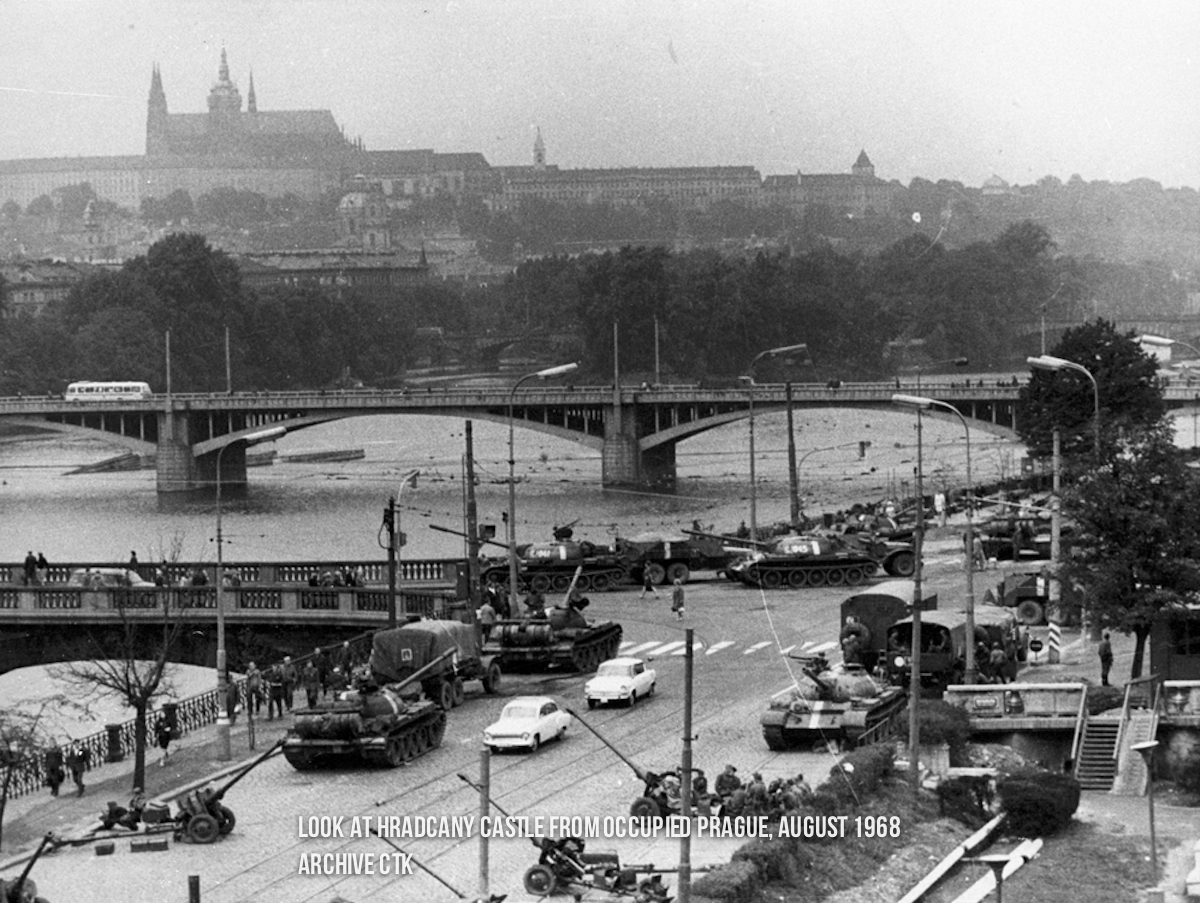The facts as affirmed by thousand of witnesses, both domestic and foreign, researchers, historians, defectors from the Soviet military and others were straightforward: Soviet-led forces suppressed an attempt by the Czechoslovakian communist leadership to bring peaceful liberal change to the country. The cautious reforms were brutally crushed.
It was inevitable that the Kremlin anticipated a heightened awareness of the events during their 50th anniversary year of 2018. It was predictable that Vladimir Putin would one day find it crucial to fabricate the history of the ‘Prague Spring’, also called the ‘Velvet Revolution’. Thus the first twisted re-telling of the developments a half century ago was released through a documentary broadcast on May 23, 2015 by the Russian state TV channel Rossiya 1, entitled ‘The Warsaw Pact – Declassified Pages’.
The program’s producers claimed to have had access to previously sealed Soviet archival documents, which professed to offer new insight to the August 1968 Soviet-led invasion of Czechoslovakia. The program claimed that the invasion was unavoidable, that it was a pre-emptive strike in defence of Czechoslovakia, a protective measure to fend off a planned coup planned by NATO. The Western takeover would supposedly be camouflaged as a peaceful civilian uprising under the innocent banner of ‘The Prague Spring’.
The Slovak and Czech governments protested to Moscow that Rossiya 1’s documentary was grossly misleading. They reminded Moscow that the Soviet Union and its invasion partner of Bulgaria, Hungary, Poland and East Germany had all apologized in December 1989 for their joint attack. The apologies were proffered in the prevailing Gorbachev-initiated spirit of perestroika and glasnost. It was understood that the stifling of the 1968 Czechoslovakian reforms had nothing to do with any possible NATO coup. The apologies were rather an acknowledgment that it was a brutal attack against any reforms, quite similar to Gorbachev’s changes in the late 1980’s. Putin’s Russia has never apologized.
(This writer recalls the observations of a professor of East European history who assured his students in 1968 that it’s now evident that Communism can be reformed and any suggestion that Russia might intervene is abject nonsense.)
On November 21, 2017, the website of the Russian Ministry of Defence TV channel, Zvezda, published an article entitled “Czechoslovakia should be grateful to the USSR for 1968: ‘The History of the Prague Spring’”. It stated that the intervention in Czechoslovakia prevented developments similar to the Ukrainian Maidan Revolution in 2014.
Claims in the Zvezda article coincide precisely with current pro-Kremlin disinformation: “The entry of troops into Czechoslovakia in 1968 made it impossible for the West to organize a coup d’etat … by making a ‘velvet’ revolutions… .” “Now, in 2017 … the West continues to wage a cold war against us and Russophobia dominates all Western media.” Putin had to repeat this political mantra, that NATO always has been an offensive, anti-Russian threat and Russians must be reminded how he is the main bulwark to Western aggression.
The Czech President and leading politicians called the article ‘outright lies’. After other protests the article’s headline was changed to “Czechoslovakia 1986: ‘The History of the Prague Spring’”. Eventually the article was removed after further protest.
It was a foregone conclusion that the Russian lies were a proactive disinformation campaign prior to the 2018 recollections of what happened exactly a half century earlier. It’s said that the fabrications were mainly directed at the Russian public. But it was still an essential part of the Kremlin to revising history of the Soviets and post-Soviet Russia. The campaign is gathering momentum and shows the Kremlin’s determination to make Russians see NATO as an ongoing threat, just as Russia claims it was in 1968.
However, Sputnik, the Russian news agency, true to form, in its website on August 21, 2018 headlined, “50 years since Prague Spring: We shouldn’t equate Russia to USSR”. Quoting a Czech journalist: “I believe that it’s wrong to speculate about it after 50 years has passed.”
It’s not unrealistic to predict that the lies about 1968 may become even more bizarre and outrageous in the future. Even though the Kremlin could be more intent in targeting and influencing Russians themselves, the old, cynical Russian adage that, “The trouble is, you never know what will happen yesterday”, is still pathetically accurate.
Laas Leivat, Toronto




